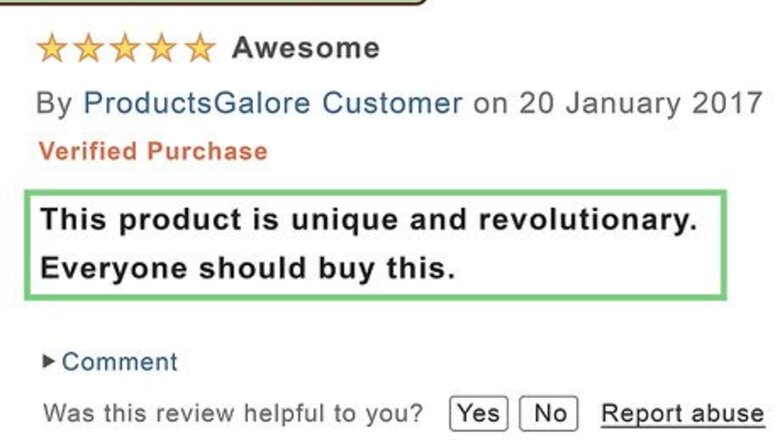
views
X
Research source
Unfortunately, this opens the door for falsified reviews that can sway a product’s ratings or influence public opinion. You can work to expose phony reviews by analyzing a review’s language, checking into a reviewer’s credibility, and seeking trustworthy reviews.
Analyzing the Language
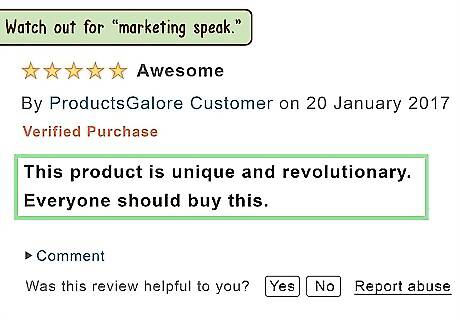
Watch out for “marketing speak.” Very often, fake reviews are created by marketing teams to help boost ratings and/or sales. As such, fake reviews often use jargon that a typical consumer probably wouldn’t. If a review reads like something that would be written on the back of the box, steer clear of it. This can include buzzwords like “one-of-a-kind,” “unique,” “award-winning,” or “revolutionary.” This can also use the “brand approved” version of the product name, such as always typing the brand in all caps.
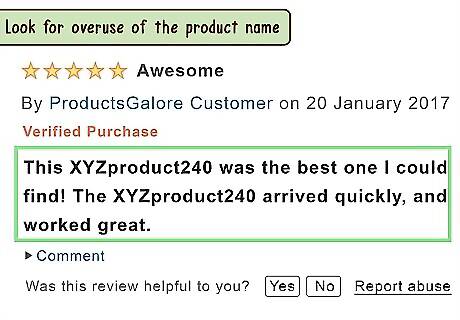
Look for overuse of the product name. Additionally, some marketers will fabricate reviews to improve search-engine rankings. In these instances, fake reviews will include multiple instances of the full product name. Once again, no average consumer would normally speak this way. A review might say, “This XYZproduct240 was the best one I could find! The XYZproduct240 arrived quickly, and worked great.”
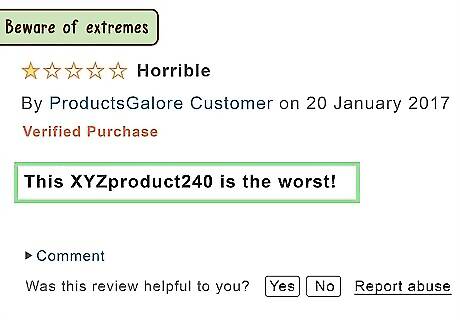
Beware of extremes. Reviews that are scathingly negative are sometimes created by a competitor. Likewise, reviews that are flawless and glowing can sometimes be linked back to a marketer. In reality, most people will find some good things and some bad things in any given product. Reviews that go to either extreme should be given scrutiny. Most people will not categorize something as either the “worst” or “best” product. Watch out for negative words like, “horrible,” “worst,” or “awful.” Beware of positive superlatives like “best,” incredible,” “life-changing.”
Checking the Reviewer’s Credibility
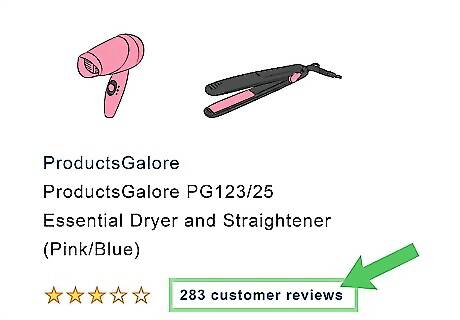
Check the number of reviews. To establish the credibility of a given review, try to establish the credibility of the reviewer. Look at a reviewer’s profile. Is this the first and only review they have ever posted? Also, did they just create the account on the day they posted the review? These can be signs that the review and/or the account is falsified.
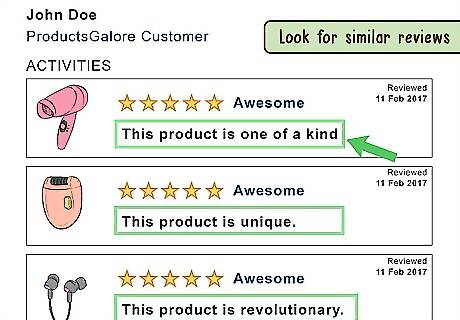
Look for similar reviews and/or similar posting dates. Look again at a reviewer’s profile. Have they created reviews for other products that sound exactly like this one? Alternatively, if they have posted 3 or more reviews for different products within a couple days of each other, this reviewer is likely being paid to post reviews.
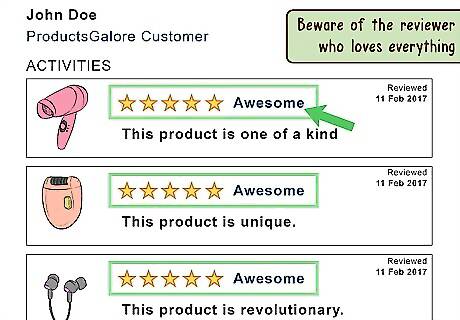
Beware of the reviewer who loves everything. Look across a reviewer’s posts and ratings. If they seem to love everything they review, or only give out 5-star ratings, they are probably being paid for these posts. Don’t trust a reviewer who loves everything about every product they rate.
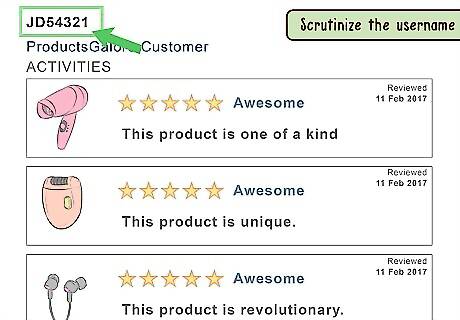
Scrutinize the username. A username with three or more numbers at the end is probably an automated bot. Particularly if you see multiple reviews for the same product from reviewers with usernames like this, you will not be able to trust these reviews.
Seeking Trustworthy Reviews

Use the “copy and paste” test. Anytime a review rubs you the wrong way, highlight a key sentence, copy it, and paste it into your search engine. If you see this exact sentence popping up on a number of other review sites (even if it is for different products), this can indicate the review is a fake.
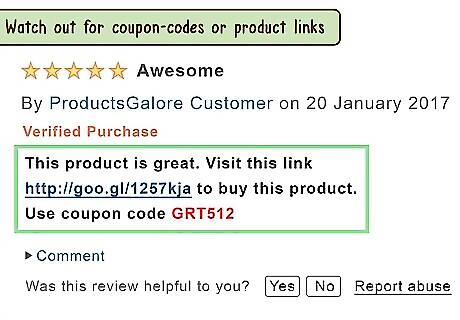
Watch out for coupon-codes or product links. If a reviewer includes any kind of link to purchase a product or coupon code, discard it immediately. Whether they are promoting the product they are reviewing, or promoting a different product to purchase instead, such links and codes are definitive red flags.
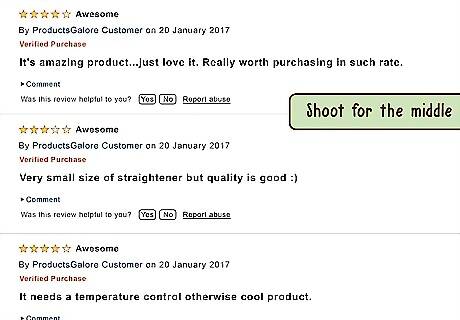
Shoot for the middle. Reviews with either 1-star or 5-star ratings are the most likely to be falsified. If you read mostly 2-4 star reviews, you will eliminate a lot of the guesswork and encounter more genuine reviews.




















Comments
0 comment